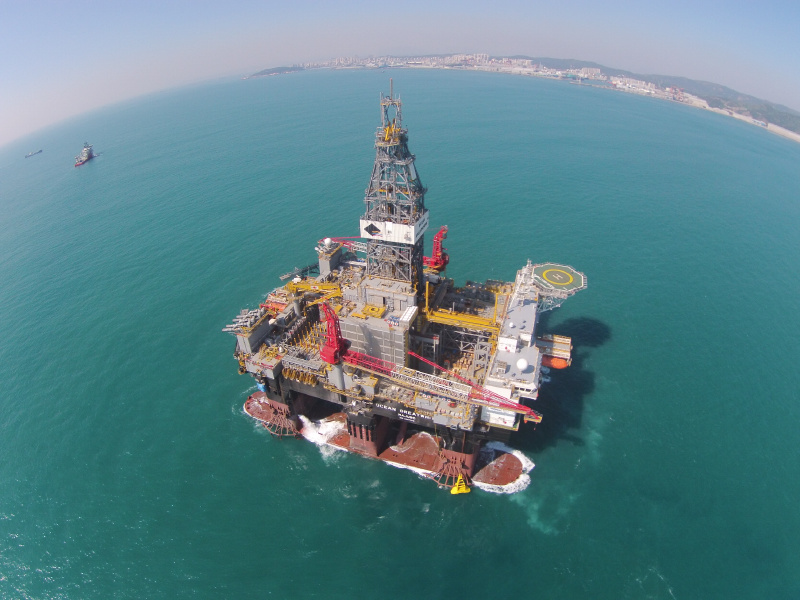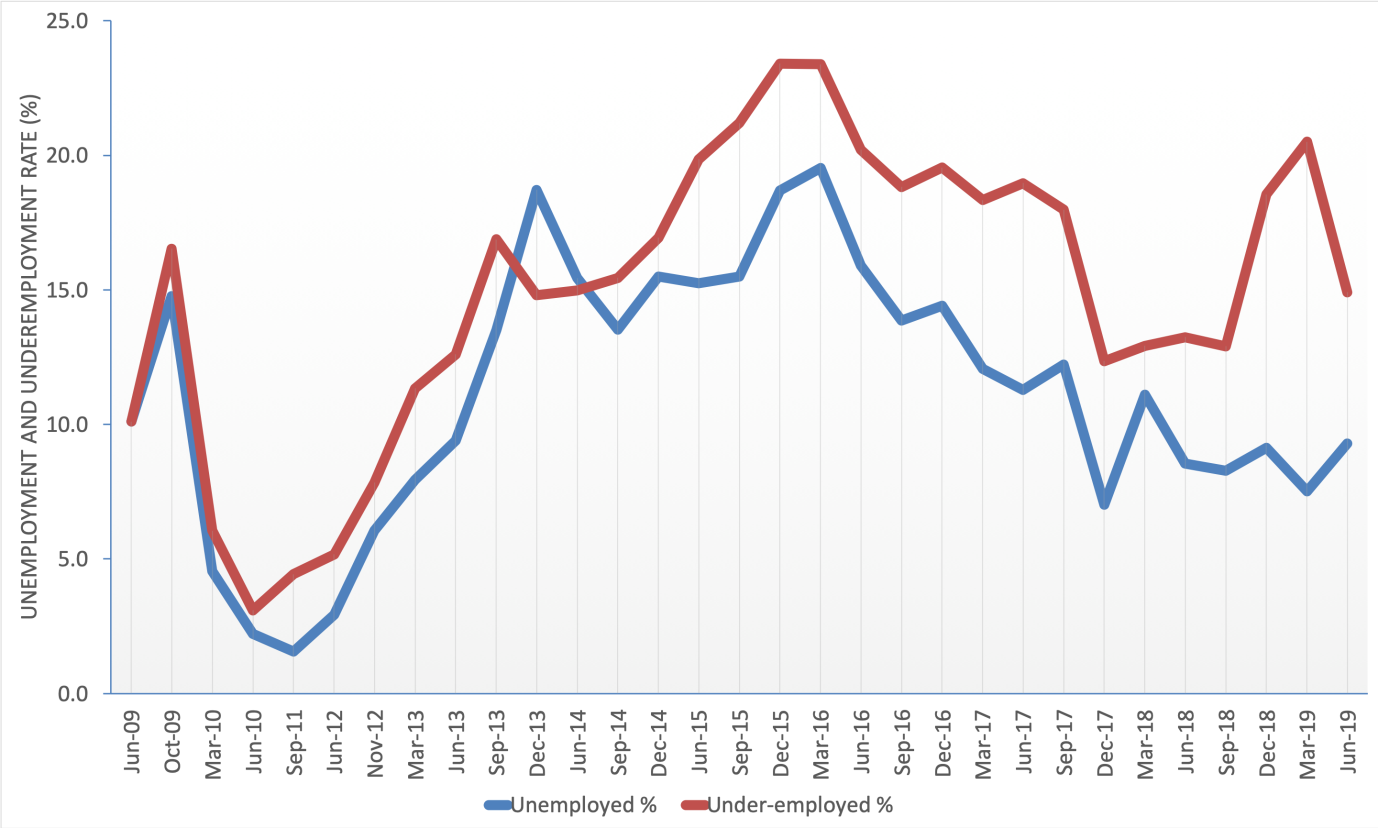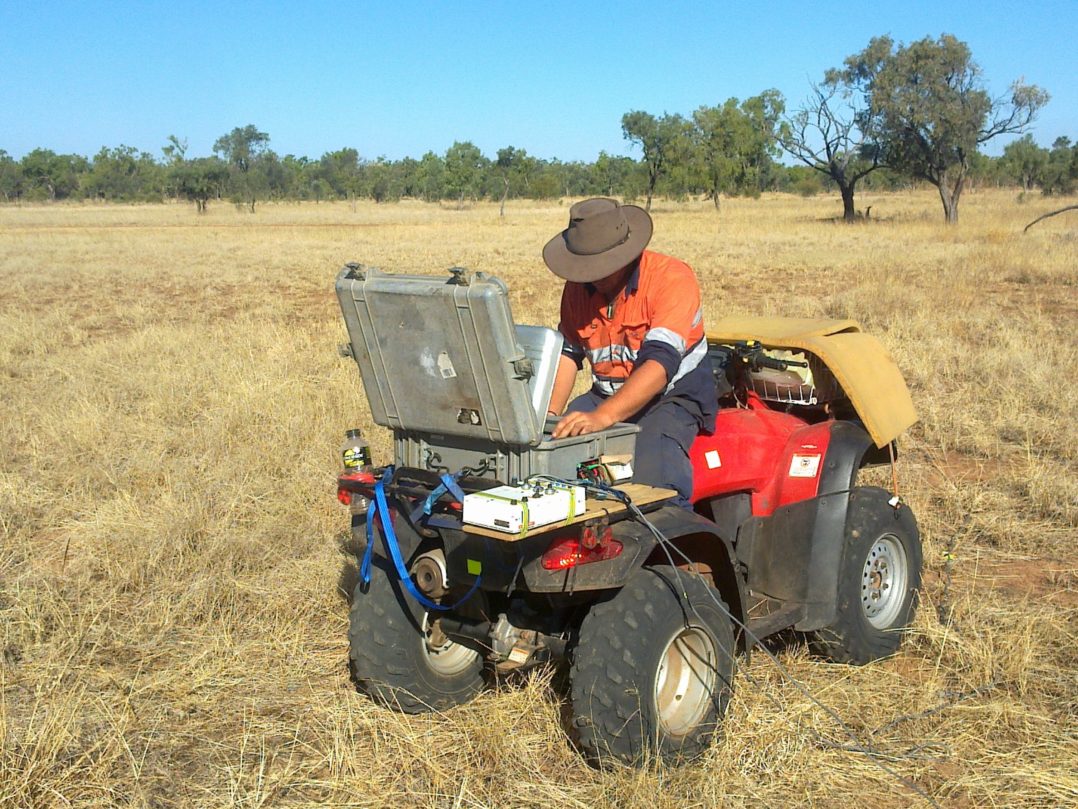Geoscientist employment in Australia improved in the second quarter of 2020. Nationally, unemployment decreased to 8.6% from 10% in the March quarter, while underemployment also fell to 17.4% from 18.1% for the period.
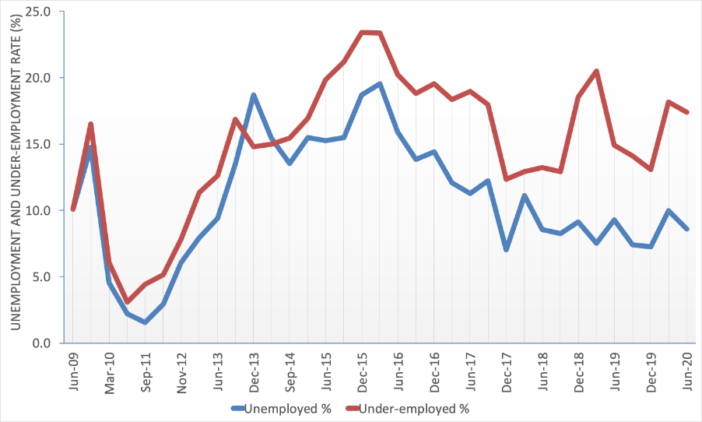
AIG President, Andrew Waltho, described the improvement as most welcome. “The level of improvement observed in the survey results was small but defied the increase in unemployment observed in the Australian community as a whole, and the sharp downturn in economic activity affecting Australia’s economy” Mr Waltho said.
“Some caution is needed with the improvement recorded only representing half of the increase observed during the first quarter of this year, but any improvement under the economic conditions prevailing in Australia at the moment is both welcome and encouraging” Mr Waltho said.
“With more than three-quarters of Australia’s geoscientists working in exploration and mining, the results point to the absolute importance of our mineral resource industries in helping to maintain economic activity in Australia, even while in recession” Mr Waltho said.
“This quarter is also the first time since the 2011 minerals boom that geoscientist unemployment has fallen below the unemployment rate for the Australian economy as a whole, pointing to the success of efforts being made to ensure business continuity and resilience during the pandemic” Mr Waltho said.
“It is very encouraging to see mining and exploration activity continuing across Australia under very difficult conditions” Mr Waltho said.
Employment impacts varied between states. Unemployment amongst geoscientists fell in Western Australia, but increased slightly in Queensland, New South Wales and the ACT, and Victoria. Underemployment fell in Western Australia, New South Wales and ACT, and Victoria, and remained little changed in Queensland from the previous quarter.
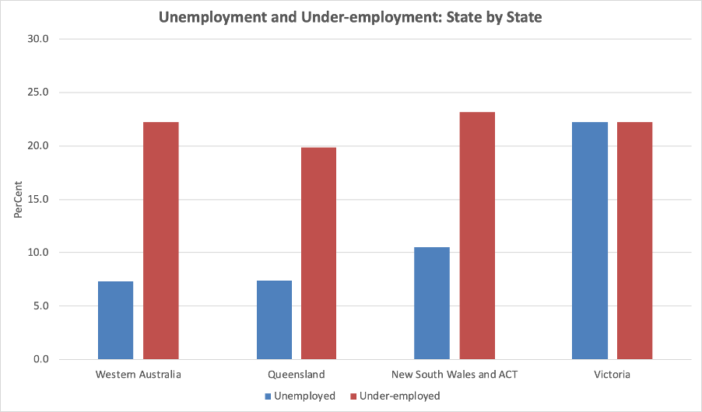
A high proportion of self-employed geoscientists, however, continued to experience difficulty securing more than a quarter of their desired workload.
Long term unemployment remained stubbornly high, with almost 34% of unemployed geoscientists reporting having been out of work for more than 12 months, including 22% who have been out of work for more than two years. Some 40% of unemployed geoscientists were not confident of returning to work within the next 12 months.
“Long-term unemployment continues to be of serious concern” Mr Waltho said.
“AIG, other professional associations and industry groups including CSIRO have responded positively to the challenges posed by the pandemic and the need to suppress the coronavirus through limiting gatherings of people by moving quickly to delivering professional development talks, seminars and short-courses on-line, allowing members to continue to develop their careers from home” Mr Waltho said.
“These have included many talks and seminars delivered at no cost to participants in an effort to provide members with accessible and valuable professional development opportunities, essential to maintain members’ skills and motivation” Mr Waltho said.
“In many ways, access to continued professional development opportunities has improved significantly, with events previously available only in particular cities or states accessible nationally, and by members overseas” Mr Waltho said.
“Professional associations are learning things in response to the pandemic that will become part of the way in which they engage with members on an ongoing basis, to the benefit of all” Mr Waltho said.
“A recent success has been delivery of structured training on public reporting of exploration results, mineral resources and ore reserves in compliance with the JORC Code which sets out minimum standards for this in Australia and New Zealand and is used as a model in many countries throughout the world”.
“The short course was originally developed for face to face delivery but has been adapted to become a very successful and effective on-line offering that has attracted attendees from a number of overseas countries and professionals from non-geoscience fields such as banking and finance and investors to whom mineral resources and reserves are relevant to their work and future” Mr Waltho said.
“It has been both gratifying and encouraging to receive extremely positive feedback from participants that will contribute to continuous improvement of the course”.
“AIG is always looking at ways of improving benefits of membership to professional geoscientists globally” Mr Waltho said.
An excellent response to the survey was received nationally, with 508 geoscientists completing the survey. Responses from geoscientists in South Australia fell, however, preventing state employment and underemployment results from being reported.


